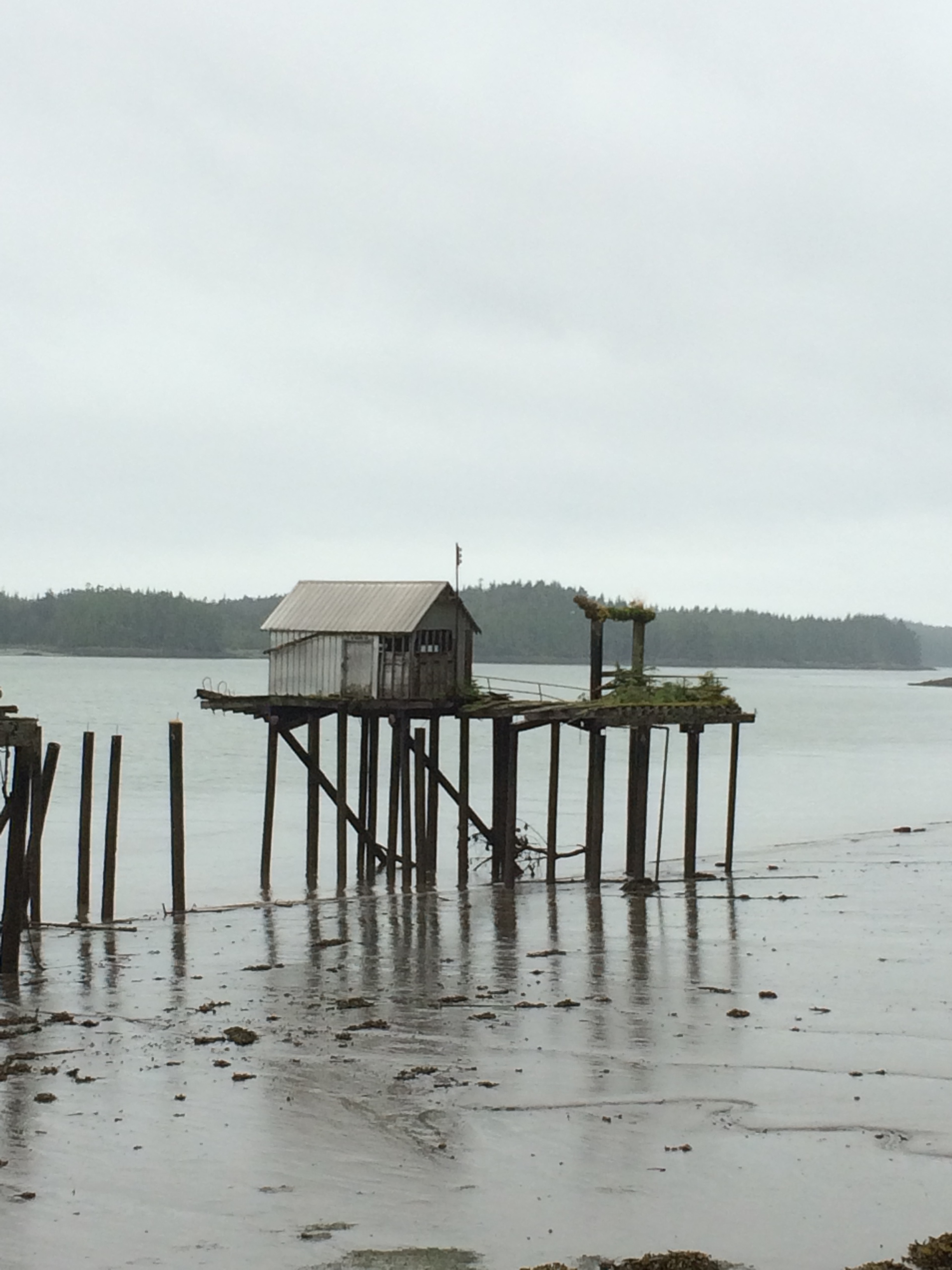
The research team visited many sites in Alberta and BC to analyze the effect of boom and bust cycles on the physical landscape.
Van Assche's team will be presenting and discussing early results of an ongoing collaborative research effort aimed at understanding cycles of boom, bust and decay in Western Canada and bringing forth policy recommendations for tempering mechanisms. The project investigates small towns in the provinces of Alberta and British Columbia and compares their development trajectories focusing particularly on their governance paths. The team recognizes that each path is unique and each community will therefore respond differently to intervention attempts. Through mapping and comparative analysis of governance paths and linkages with physical and policy landscapes, they analyze previous attempts to deal with boom and bust within the context of each community in hopes of discerning ways to temper these cycles and to foster sustainable development and resilience.
The workshop will feature presentations by the team members, participating students, and two external guests, Professor Ted Binnema from UNBC and Professor Raoul Beunen from the Open University (Netherlands).
Date and time: September 25th, 2015, 10:00am - 5:00pm
Location: Planning Studio, Tory Building 3rd Floor
Please email Monica Gruezmacher Rosas at gruezmac@ualberta.ca to RSVP for the event.
Please see below for key lecture abstracts and the schedule.
Key lecture abstracts
Resilience and innovation in governance: Dutch regions dealing with population decline
Raoul Beunen
Assistant Professor Environmental Governance
Open University, the Netherlands
www.governancetheory.com
Dr. Beunen is assistant professor environmental governance at the Open University in the Netherlands. His research explores the potentials and limitations of environmental policy and planning in the perspective of adaptive governance and sustainability. Particular attention is given to the implementation of European Union environmental policies, participatory approaches, social innovation, and the performance of legal institutions.
Abstract
Various Dutch regions deal with population decline. Such decline has important and far reaching consequences for economic and social livability, social capital and governance capabilities. In response local communities are developing alternative models of governance in which inhabitants are increasingly included in the formulation and implementation of policies and plans. We use Evolutionary Governance Theory to understand the emergence and impacts of these governance innovations and to assess their contribution to resilient communities. We explore how initiatives for innovation in local governance affect the perspectives, interests, and strategies of public and private actors and the ways in which these are reflected in institutional frameworks.
Boom and Bust: Nature's economy?
Theodore Binnema
Professor and Department Chair
University of Northern British Columbia
Dr. Binnema entered the historical profession after teaching high school English and social studies for several years. He has been teaching at UNBC since 2000, where he now teaches in the fields of Canadian and United States history, aboriginal history, and environmental history.
He has written several books that examine various aspects of environmental history, aboriginal history, and the history of science.
Abstract
I will discuss evidence that human communities in northern British Columbia have been forced to understand and adapt to boom and bust cycles for thousands of years. I will survey the history of booms and bust from the period before European contact, through the fur trade, gold rushes, and mining booms into the twenty first century. Then, speaking more personally, as a resident of British Columbia, I will discuss my impressions of the present realities in northern British Columbia, with the aim of helping others understand the unique perspectives of those who live in the region.
Schedule of the event
|
10:00 |
Welcome |
|
Key guest lectures |
|
|
10:15 |
Resilience and innovation in governance: Dutch regions dealing with population decline Raoul Beunen Open University Netherlands/ Wageningen University |
|
11:00 |
Boom and Bust: Nature's economy? Ted Binnema University of Northern British Columbia |
|
12:15 |
Lunch |
|
Team member presentations |
|
|
1:30 |
Fabio de Faria Tolentino, Adam Roy, Stephan Lavoie University of Alberta |
|
1:50 |
Leith Deacon University of Alberta |
|
2:10 |
Robert Summers University of Alberta |
|
2:30 |
Coffee Break |
|
2:40 |
Monica Gruzmacher University of Alberta |
|
3:00 |
Kevin Jones University of Alberta |
|
3:20 |
Short and long term perspectives in governance of boom and bust communities Kristof Van Assche University of Alberta |
|
3:40 |
Discussion, concluding remarks and next steps |
|
4:15 |
Continue discussion over a drink |